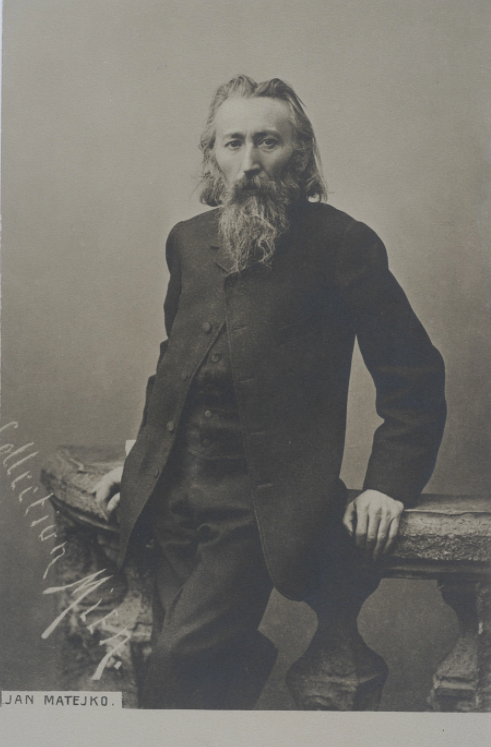


Jan Matejko, born on June 1838, in Kraków, was one of Poland's most prominent historical painters, celebrated for his monumental works that depict key moments in Polish history. He came from a family with Czech roots; his father, Franciszek Matejko, was a teacher, and his mother, Joanna Rossberg, was of German descent. From an early age, Matejko displayed remarkable artistic talent and a strong passion for history, which later evolved into his deep interest in historical painting.
Matejko began his studies at the School of Fine Arts in Kraków, graduating in 1858. He continued his education in Munich and Vienna, where his skills and unique style garnered widespread recognition. Among his most famous paintings are Stańczyk (1862), The Sermon of Piotr Skarga (1864), The Battle of Grunwald (1878), and The Prussian Homage (1882). His works became national symbols, capturing moments of triumph and Polish pride.
Through his art, Matejko expressed profound patriotism and hope for Poland’s independence. His paintings, filled with drama and historical detail, earned acclaim throughout Europe. Matejko passed away on November 1, 1893, in Kraków, leaving behind a rich legacy that not only solidified Poland’s place in European art history but also reinforced a sense of national identity and patriotism.